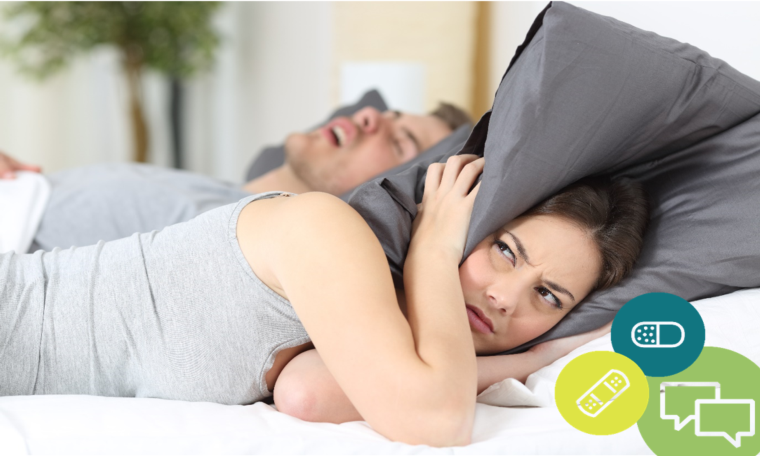
Many of us will have at some point shared a room or bed with someone who can’t help snoring. With an estimated 15 million snorers across the UK, anti-snoring devices and products promise a lifeline those with this common condition. However no-one wants to wake up on the wrong side of bed when it comes to marketing these kinds of products.
To mark National Stop Snoring Week, aimed at raising awareness and putting a plug in nocturnal noises, we’ve put together this guidance to help advertisers rest easier.
Is my product a medical device or a medicine?
Claims that products can “cure”, “restore”, “prevent”, “avoid”, “fight” or “heal” are likely to be considered ‘medicinal’. Depending on how your anti-snoring product works, or the claims you make, it could be a medical device as defined by The Medical Devices Regulations 2002 or a medicine. Both require certification. Medicines need to be licensed by the MHRA and medical devices need to be CE Marked.
If your product is a medical device, failure to achieve a CE device certification will mean any claims you make about it could be in breach of the CAP Code. Similarly, if it’s a medicine, the claims you make must be in line with the summary of product characteristics (SPC).
If you are unsure about the definition of your product, you should contact the Medicines and Healthcare products Regulatory Agency (MHRA). You can find out further CAP guidance about medical devices here and medicinal claims here. You may also find the MHRA’s Blue Guide on the advertising and promotion of medicines helpful.
What evidence do I need to support my claim?
Whether you have a CE marked medical device or perhaps a type of therapy for treating snoring, you’ll still need appropriate evidence to show your snoring solution works the way you claim it to.
Typically, appropriate evidence could include at least one adequately controlled experimental human study. Before and after studies with little or no control, studies without human subjects, self-assessment studies and anecdotal evidence are unlikely to be considered acceptable.
In this ruling, the ASA found that, in spite of being marked as a class 1 medical device, this advertiser couldn’t show their product alleviated a number of health conditions which included snoring.
This guidance from CAP gives more detail about the types of health evidence and the levels of substantiation expected in health, beauty and slimming claims.
Can I use testimonials to support my claim?
The experience of consumers is a powerful marketing tool for any anti-snoring ad. However if a testimonial includes a direct or indirect claim to relieve a condition or symptom then this is subject to the same rules as any claims.
In this ruling for The Good Night Ring, the ASA upheld a complaint where the advertiser was able to provide evidence for the testimonials but failed to provide appropriate clinical evidence that demonstrated the product worked as advertised.
Don’t get caught snoozing - this e-learning module offers in-depth training on health, medicine and medical devices and our Copy Advice team can offer a helping hand for your non-broadcast ads.
More on
-
Keep up to date
Sign up to our rulings, newsletters and emargoed access for Press. Subscribe now.


